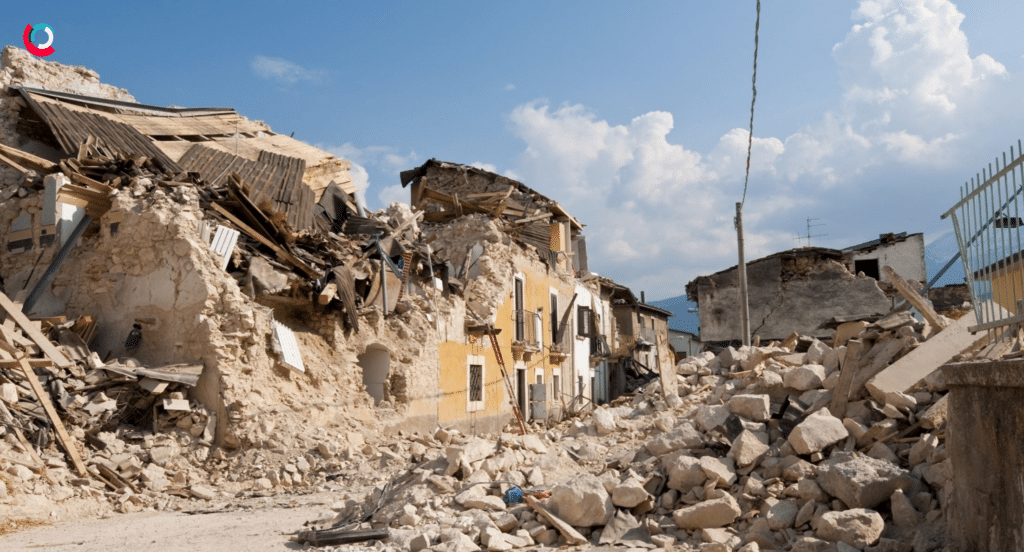By Samir Brahimi
Introduction
On 6 February, two devastating earthquakes measuring 7.8 and 7.6 magnitude on the Richter scale hit Türkiye and Syria. The earthquakes, which were centred around the Turkish city of Kahramanmaras, wiped out entire city blocks, killing more than 48,000 people in both countries, injuring over 100,000 others and displacing hundreds of thousands more.
More than 9.1 million people have been impacted across 11 provinces in Türkiye, where at least 44,000 deaths have been recorded and a three-month state of emergency was imposed in the provinces of Adiyaman, Gaziantep, Kilis, Hatay, Malatya, Diyarbakir, Adana, Osmaniye, Kahramanmaras and Sanliurfa.
A further 8.8 million people have been directly impacted in Syria’s Aleppo, Idlib, Hama and Latakia governorates, where the territory is divided between government-controlled areas and opposition-held areas. The earthquakes struck during the peak of winter, exacerbating an already dire situation in Syria, where around 4.1 million people require humanitarian assistance. Hundreds of thousands of people remain without access to shelter, food and essential services, and over 5.3 million people could be left homeless in Syria following the earthquakes.
Complicated relief efforts
Initial rescue efforts were impeded by freezing temperatures and the extensive damage, with hospitals, airports and other critical infrastructure severely damaged. Insecurity also led to the suspension of rescue operations in some areas due to unrest and the looting of damaged buildings and vehicles. In northwestern Syria, difficulties in delivering humanitarian aid have also hampered relief efforts as President Bashar al-Assad initially refused to open border crossings with Türkiye, denying assistance to those impacted by the earthquakes in rebel-held areas.
More than 7,000 aftershocks have taken place since 6 February, including on 20 February when a 6.4-magnitude aftershock in Türkiye’s Hatay province killed eight people and injured more than 300 others. While people in the region attempt to come to terms with the devastation caused by the earthquakes, the aftershocks have complicated rescue efforts and spread further anxiety and panic. The true extent of the destruction is likely to be much worse as authorities continue to assess the damage and search for victims.
Prioritising earthquake preparedness amid rising public anger in Türkiye
Situated on two major fault lines in one of the world’s most active seismic zones, Türkiye is particularly prone to earthquakes and scientists have warned that Istanbul is under imminent threat from a major earthquake, with the main question being a case of when rather than if. With that in mind, attention has turned to earthquake preparedness. In Istanbul, authorities have warned that 90,000 buildings are considered highly vulnerable to earthquakes and a further 170,000 are at medium-risk, meaning any large potential earthquake near the capital could be catastrophic.
Public anger over the issue is also on the rise in Türkiye. Following a deadly earthquake near Istanbul in 1999, in which more than 17,000 people were killed, the government promised to improve building regulations and preparedness, implementing an urban transformation plan to replace unsafe buildings.
The government also introduced the so-called “earthquake tax” to help fund relief efforts during a disaster. However, when newly constructed buildings collapsed during the recent earthquakes, fears have been confirmed that building codes have not been properly followed in some areas. Corruption has compounded the situation, along with a lack of will to penalise those companies and individuals who violated the regulations.
More than 110 arrest warrants have been issued for building contractors amid an investigation into negligent construction practices which may have contributed to the devastation. Although the government has promised to punish those found responsible, it is unlikely that this will be able to quell the wave of public anger aimed at the government itself over its response to the disaster and the years of negligent policies preceding it.
There is a general sense that the wave of arrests is merely scapegoating to blunt anger against politicians and their well-connected developer donors of the ruling Justice and Development Party (AKP). Further politicising the events, pro-government pundits are increasingly seeking to blame local mayors, often members of the opposition Republican People’s Party (CHP), and the Union of Chambers of Turkish Engineers and Architects (TMMOB) for past delays in earthquake-proofing buildings
Conclusion
President of Türkiye Recep Tayyip Erdoğan has promised to rebuild people’s homes within a year. However, such an ambitious timeframe could lead to another disaster in the future if the lessons from the recent earthquakes are ignored. Measures tackling corruption in the construction sector will be required in the long-term if the government is to ensure regulations are enforced, along with a government plan to bolster critical infrastructure and carry out urban planning with fault lines in mind.
President Erdoğan’s government came to power 20 years ago, in part campaigning on the 1999 earthquake and an economic crisis. With elections planned in Türkiye in May 2023 and the economic fallout of the earthquakes still being calculated, public anger is likely to persist.
Samir Brahimi is Riskline’s EMEA Team Leader.















